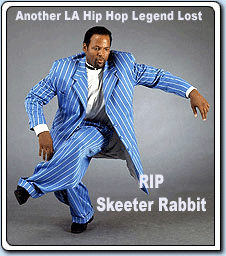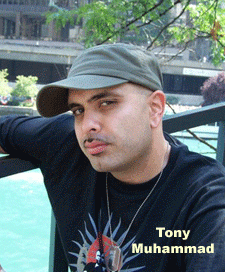
|
Choosing Hip over Hype |
| Listeners emerge from radio daze, tuning out Hot 97 to pump up WBLSBy Errol Louis orginal article-June 23, 2006 http://www.nydailynews.com/06-23-2006/news/col/story/ 429055p-361762c.html |
|
Here’s some news that will be music to the ears of the many New Yorkers who have grown sick of the vulgarity, violence and stale, payola-driven programming that has poisoned much of urban radio and black culture in general.According to the latest Arbitron figures, tens of thousands of listeners appear to be tuning out Hot 97 – which used to be ranked the No.1 hip hop/R&B station in New York – in favor of WBLS, which beat out Hot 97 in each of the last two ratings periods.
WBLS has been on a tear for the past year, thanks to its decision to hire two powerhouse broadcasters: Steve Harvey, who hosts a morning drive time talk-and-music show, and Wendy Williams, who holds down a block from 2 p.m. to 7 p.m. Harvey and Williams are seasoned radio personalities who bring wit, intelligence and a positive message to a mostly black audience that is hungry for quality. You don’t hear the b-word or N-word tossed around on WBLS; Harvey and Williams are too classy to insult their audience that way. And listeners have responded in droves. According to Arbitron, WBLS had 3.1f the city’s teen and adult radio listeners last winter, but has increased its audience size over each of the last four ratings periods, building its share up to 3.9àDuring the same time, Hot 97 slipped steadily from 4.5f listeners to 3.7à In plain English, WBLS now draws about 30,664 more listeners than Hot 97 during any given period between 6 a.m. and midnight. That can translate into millions of advertising dollars moving from the losing station to the winner. The numbers are a victory for community groups that called for a boycott of Hot 97 following its repeated broadcast of a sickening song parody that mocked victims of the 2004 tsunami that devastated Asia. More negative press dogged the station thanks to three shootings in front of its office over the last few years by the entourages of rappers invited by – and sometimes incited by – station deejays. The decline of “Shot 97” provides powerful evidence that positive, quality programming ultimately wins more listeners – and advertising dollars – than shallow shock radio. Power 105.1, the third urban-format station, has been dropping in the rankings as well, losing to WBLS earlier this year and barely eking out a win most recently with 4f listeners. The station’s rankings may continue to fall, thanks to the recent, career-ending tirade of Power 105.1’s ex-morning host, Troi (Star) Torain, who got a pink slip and a criminal indictment after threatening, on-air, to sexually assault the 4-year-old child of a rival deejay at (where else?) Hot 97. “The hip-hop stations are losing audience share all over the country. How much can you hear about Jay-Z?” says Paul Porter, a media critic who runs a Web site, IndustryEars.com. “Steve Harvey’s topical; he’ll point out things you won’t get on other shows. He’s going to be the biggest voice in black radio.” Credit for the changing mood also goes to groups like the Boston-based Seymour Institute, a black think tank, that have been quietly waging an effort, church by church, to mobilize the black middle-class against the hedonistic and violent lyrics and imagery that have sprouted in hip-hop culture like weeds. “There is a cultural marketing machine that pushes toxic entertainment upon black adults, adolescents and children each day,” says the Seymour group in a recent manifesto. “There is no need for the black community to be complicit in its own degradation.” The same message is being echoed by local grass-roots groups, from www.abolishthenword.com to an organization from a Bronx church called the Council of Bad Language Disdainers. Cultural politics aside, Harvey and Williams are succeeding because they do radio the way it should be: smooth and smart. Tune into 107.5 FM and listen for yourself.
|
 Have you listened to hip hop radio lately? Or should I say what passes for hip hop radio. Like anything else in our culture the standards for urban radio have been lowered.
Have you listened to hip hop radio lately? Or should I say what passes for hip hop radio. Like anything else in our culture the standards for urban radio have been lowered. Greg Mack, the pioneering LA dee-jay that was on KDAY back in the 80s and 90s, the man that any-artist-that-wanted-his-record broken in LA had to see. When he interviewed an artist, like, Big Daddy Kane, for instance, he asked Kane questions like; So Big Daddy, where did you first start performing? What year was it? Who were some of the people that you looked up to while you were coming up? What’s this whole thing with the Juice Crew and BDP, the reason I ask is because you seem to be respected by both sides so, what’s your take on things? How do you think it can be resolved?
Greg Mack, the pioneering LA dee-jay that was on KDAY back in the 80s and 90s, the man that any-artist-that-wanted-his-record broken in LA had to see. When he interviewed an artist, like, Big Daddy Kane, for instance, he asked Kane questions like; So Big Daddy, where did you first start performing? What year was it? Who were some of the people that you looked up to while you were coming up? What’s this whole thing with the Juice Crew and BDP, the reason I ask is because you seem to be respected by both sides so, what’s your take on things? How do you think it can be resolved? If you check the latest ratings you may find it interesting to note the fall of some prominent Hip Hop stations in Los Angeles and New York. For the first time in a long time WBLS an adult oriented station is actually doing better then both Hot 97 and Power 105. In Los Angeles none of the urban stations (KPWR-Power 106), KKBT 100.3 the Beat and KDAY are in the top 10. The fall of Power 106 which is sister station to Hot 97 is major when you consider the fact for years this was the dominant station in LA.
If you check the latest ratings you may find it interesting to note the fall of some prominent Hip Hop stations in Los Angeles and New York. For the first time in a long time WBLS an adult oriented station is actually doing better then both Hot 97 and Power 105. In Los Angeles none of the urban stations (KPWR-Power 106), KKBT 100.3 the Beat and KDAY are in the top 10. The fall of Power 106 which is sister station to Hot 97 is major when you consider the fact for years this was the dominant station in LA. Shame on former Black Panther, Congressman Bobby Rush for selling us out and supporting these corporations. Shame on the National Coalition on Black Civic Participation and any other Civil Rights group pretending to represent our interests while selling us out and taking the money to front for these groups. And while Im glad former Congressman Ron Dellums did well in his Mayoral bid in Oakland, we should not forget that hes also a lobbyist with one of his main clients being Verizon so shame on him as well. How’s Oakland gonna be a world class city that is a beacon for new technology and innovation when his client is one of the main people trying to shut down the Internet?
Shame on former Black Panther, Congressman Bobby Rush for selling us out and supporting these corporations. Shame on the National Coalition on Black Civic Participation and any other Civil Rights group pretending to represent our interests while selling us out and taking the money to front for these groups. And while Im glad former Congressman Ron Dellums did well in his Mayoral bid in Oakland, we should not forget that hes also a lobbyist with one of his main clients being Verizon so shame on him as well. How’s Oakland gonna be a world class city that is a beacon for new technology and innovation when his client is one of the main people trying to shut down the Internet?
 This is one of the deepest and realest interviews you will ever hear as we sat down with MC Hammer for a candid no holds barred interview about all things Hip Hop. What he had to say was both eye opening and incredibly insightful.
This is one of the deepest and realest interviews you will ever hear as we sat down with MC Hammer for a candid no holds barred interview about all things Hip Hop. What he had to say was both eye opening and incredibly insightful.

 The hip-hop community has been hit with devastating losses over the past few months.
The hip-hop community has been hit with devastating losses over the past few months.
 Just hours prior to his lecture at Florida International University this past month, KRS-One and myself had a deep conversation about how controversial the topic of discussion for the evening was Hip Hop and the Art of Civilization Building.
Just hours prior to his lecture at Florida International University this past month, KRS-One and myself had a deep conversation about how controversial the topic of discussion for the evening was Hip Hop and the Art of Civilization Building. Marcus Mosiah Garvey, the founder and leader of the Universal Negro Improvement Association (UNIA) in the early 20th century, was deemed controversial for arguing that peoples of African descent are in fact one people because they share a common racial condition and history.
Marcus Mosiah Garvey, the founder and leader of the Universal Negro Improvement Association (UNIA) in the early 20th century, was deemed controversial for arguing that peoples of African descent are in fact one people because they share a common racial condition and history. Those who do not take KRS-One seriously in these endeavors typically just view him as an artist.
Those who do not take KRS-One seriously in these endeavors typically just view him as an artist.